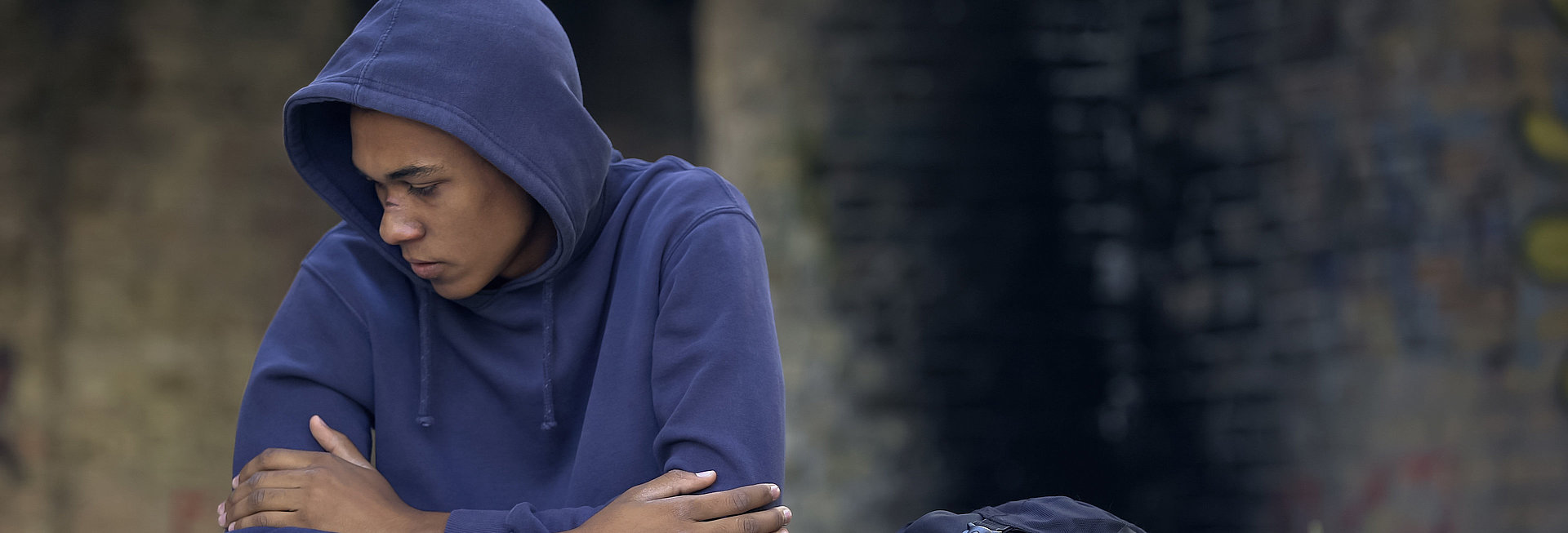Taboo and stigma
Sexual violence is often considered a taboo topic.
It is often extremely difficult for victims of sexual violence to disclose their experiences to others. The feeling of not being able to talk about it can be a strong additional burden. Male victims seem to have a particularly high barrier to report their experiences of violence.
This can partly be explained by a certain idea of what is considered masculine and what is not. In most societies, there is an image that a man should be strong, dominant and able to defend himself, that he should be able to provide for his family, and that he should not depend on the help of others. Becoming a victim, and a victim of sexual violence at that – that does not fit in with this idea of masculinity. Moreover, seeking help and revealing one's vulnerability is often perceived as unmanly.
When a man reports that he has experienced sexual violence, he breaks with the ideal of masculinity in several ways. This might endanger very solid and deeply rooted ideas of gender ideology, and his environment may not react in a supportive or sympathetic way, but rather in a rejecting way. This can result in people blaming the victim for the violence, denying his masculinity, rejecting him as a person or even inflicting further violence on him.

Reasons why men do not talk about their experiences of violence:
- Not knowing who to turn to
- Strong feelings of shame
- The feeling of having to “make it” all by themselves
- Fear of making things worse by speaking out
- Fear that their story will not be believed or that they will be laughed at
- Fear of no longer being seen as a "real man" or the feeling of not being a "real man" anymore
- Fear of now being considered as a homosexual by others
- Fear of experiencing more violence
Affected men therefore often have well-understood reasons for hiding their experiences of violence from others. On the other hand, this often means that they receive neither medical care nor psychological support. On a societal level, the suffering also often remains unrecognized.
Myths and truth about sexual violence against men
What is a myth?
The term "myth" describes a narrative or idea about an issue that is prevalent in society. Myths are wrongfully taken for reality and often remain unquestioned. However, parts of the narrative are usually blurred and irrational, thus do not correspond to the facts. In a myth, facts and fiction are often mixed up. A myth can - even if its statements are wrong - considerably (also negatively) influence the way of thinking, feeling and acting of persons / a large part of the society.
Similar terms are: Legend, assumption, rumor, "fake news".
Myths and truth
Myth: Men and boys cannot be sexually abused or raped.
Truth: Men and boys also experience sexual violence - all over the world.
Myth: Only weak men and boys experience sexual violence. A strong / "real" man would defend himself.
Truth: Masculinity does not mean aggression, invulnerability and emotional silence. Regardless of physical and mental strength, in a coercive situation all men and boys can be exposed to sexual violence.
Myth: If you want to be a "real man," you have to deal with the violence that happened to you by yourself.
Truth: men and boys also suffer from psychological and physical consequences of sexual violence. They too may seek help and support for this. They still remain men / boys.
Myth: Only homosexual men and boys experience sexual violence.
Truth: All men and boys, whether heterosexual, bisexual or homosexual, can be affected by sexual violence. Unfortunately, homosexual and bisexual men and boys experience sexual violence more often than heterosexual men and boys.
Myth: Only homosexual men become sexually violent against other men or boys.
Truth: Sexual violence is independent of the sexual orientation of the perpetrators. It often has nothing to do with lust, desire or sexual attraction. Through sexual violence, power and control are exercised over another person. Often this is its central motive, especially in the context of war.
Myth: Having experienced sexual violence makes men and boys homosexual.
Truth: Men and boys affected by sexual violence feel insecure about their sexual orientation and wonder whether they might be homosexual. Researchers do not see any connection between experiences of sexual violence and sexual orientation.
Myth: An erection or ejaculation during sexual abuse/rape means that the victim felt pleasure and agreed to the act.
Truth: Erection and ejaculation are spontaneous physiological reactions that can result from mere physical contact or even extreme stress. These reactions and sensations do not mean that the affected man or boy wanted or enjoyed the abuse/rape. The reactions also do not say anything about sexual orientation.
Myth: Men and boys cannot be sexually abused / raped by women.
Truth: Women can also be perpetrators and force boys and men into unwanted sexual acts. Perpetrators in the context of war can be female soldiers, female police officers, or female prison guards, among others. Women also become perpetrators in civilian or private contexts.
Myth: Men and boys affected by sexual violence will become rapists themselves.
Truth: The vast majority of men who have experienced sexual violence in childhood or as adults do NOT become rapists/perpetrators. Men and boys who have experienced sexual violence still are loving husbands, fathers, sons, brothers, friends and important members of the community.
With the kind permission of the Psychosocial Center Refugio Thüringen , the myths about (conflict-related) sexual violence against men and boys and the respective clarifications have been taken verbally and/or in spirit from this source: https://www.refugio-thueringen.de/informationen-f%C3%BCr-betroffene



